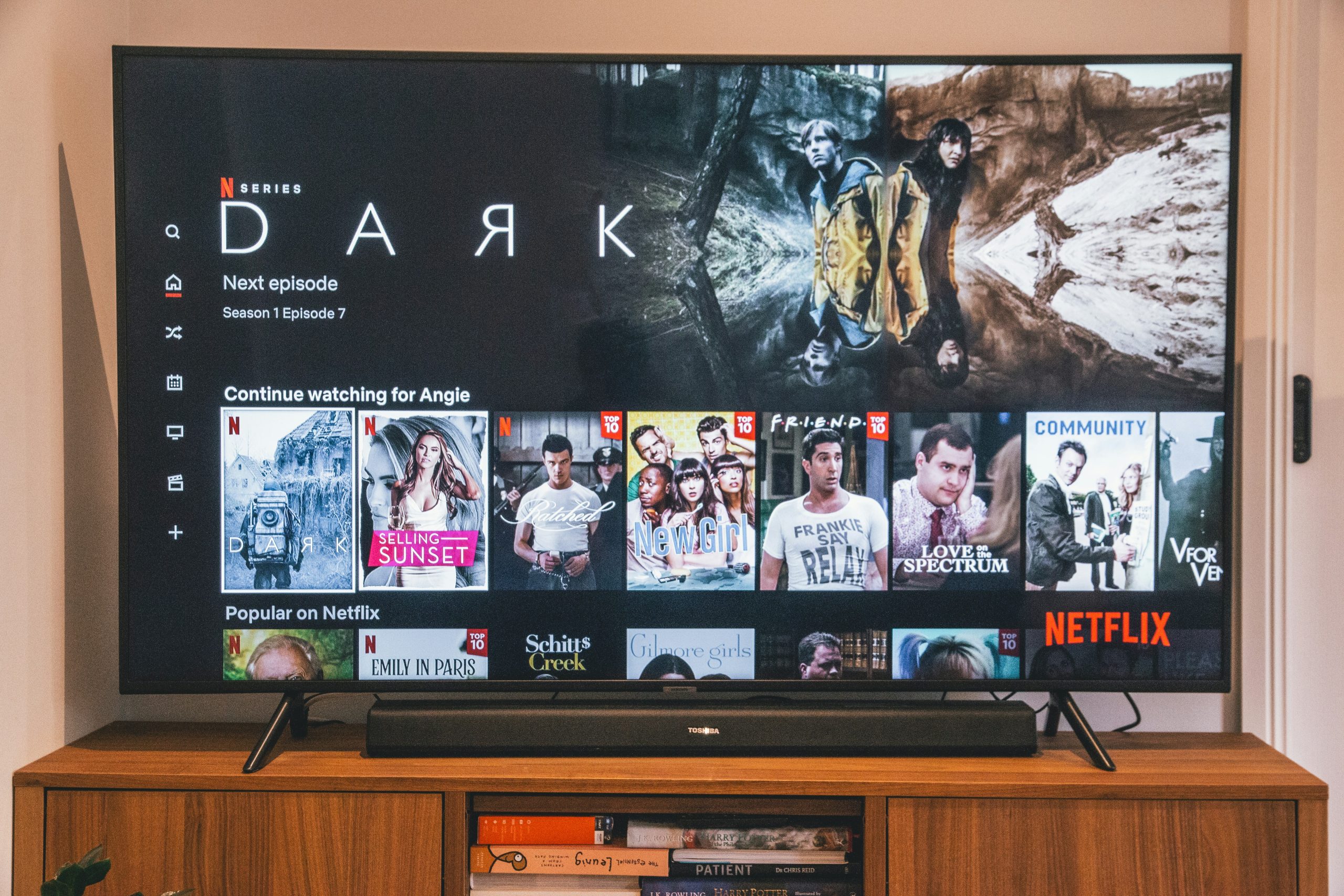
Selena Gomez Performing
Photo by Randy Miramontez (Shutterstock)
The Review
Selena Gomez’s first full-length album since 2015 is out today.
It’s supposed to be a comeback, a declaration of strength and self-love following a destructive relationship, and it fulfills this task admirably.
Rare is… fine. It offers an inspiring message about healing and growth, and it’s a marked improvement from Gomez’s previous work. Many of these songs will make exquisite soundtracks in grocery stores, malls, and clubs. They’re danceable, energized but not excessive. They’re easy listening, poised to go down like a sugary cocktail or a Xanax. Amidst the fluff, there are high points. “Vulnerable” is pristine emotional pop in the vein of Carly Rae Jepsen, and it’s cut through with the quiet strength that seems to form the album’s crux. “Lose You to Love Me” is also an exception. It’s heavy with intense high drama, laden with the kind of lush choral embellishments that often soundtracked those odd American Idol finale performances.
With that said, Rare is fairly generic, rather restrained, and definitely designed to fill a specific niche. It’s slightly kitschy, limp pop, studded with lyrics like, “I’m breaking hearts like a heart attack / wrap ’round my finger like a ring.” Gomez often sings quickly, adopting a kind of speak-sing tone that can feel at odds with the delicate fragility of her voice.
Sometimes this recipe works, but sometimes it collapses in on itself. Songs like “Let Me Get Me” are almost hellishly claustrophobic in the way that they repeat the same motif over and over, staying within the same three to five-note range. The same goes for “Kinda Crazy,” which is exhaustingly repetitive and surprisingly stagnant, especially for an album that’s supposed to be about finding one’s power and worth. Sonically, there are light touches of reggaeton and R&B, but mostly the album stays strictly in a pop landscape that would’ve fit in better two decades ago. Against today’s multi-genre landscape, it falls flat, especially when considered against the infinite amount of other music that is perpetually grasping for a fraction of the kind of attention that Rare is getting.
Overall, the album lacks sonic and thematic depth, mostly offering platitudes about getting over a lover who doesn’t care enough, never really diving into the ragged parts of Gomez’s psyche. She’s not obligated, of course, to share her feelings with anyone. But the problem is that Rare feels almost cyborgian in its detachment (though not in a purposeful Caroline Polachek way; instead, it feels like Gomez was trying and failing to be very real on Rare).
Selena Gomez – Rare (Official Music Video)www.youtube.com
The Reflection
As I wrote this, I began to wonder something. Why, really, does Selena Gomez’s music bother me so much? It would be delusional to say that the entirety of my distaste is solely based on the quality of her music. If that was the case, it would’ve been easier for me to ignore the album entirely.
Honestly, I recognize this brand of distaste. It’s the same dislike that turned me against similarly generic pop stars like early Miley Cyrus, Taylor Swift when she went pop, and the Dua Lipas and Camila Cabellos of today. So maybe the better question is: Why do I dislike the Selena Gomezes of the world so much?Why is this specific kind of mainstream, female-driven pop so abrasive to me and so many others? Am I being sexist for writing this? Am I missing something?
As a writer, I think it’s important to acknowledge that every observation I make is colored by my own individual experiences and biases. Every opinion has deep roots, and many are born in our formative years. Perhaps I dislike aggressively “likable” pop queens like Selena Gomez because they remind me of how much I disliked the beautiful, popular girls that crowded my youth. Knowing I could never be them, I began listening to indie music, rejecting the pop juggernaut and beginning the inevitable downward spiral that would culminate in a move to Brooklyn. I disliked them (the girls and the pop stars, who were somehow united in my mind) because they appeared happy (even if they were not), and in love, and flush with money and resources and keratined hair.
In Roxane Gay’s essay “Not Here to Make Friends,” she criticizes the ideal of the “likable” female character, writing, “I want characters to do the things I am afraid to do for fear of making myself more unlikable than I may already be. I want characters to be the most honest of all things—human.”
She goes on to critique the very ideal of “likeability” in literary criticism, a point that certainly extends to music criticism. Whether someone is “likable” or “unlikable” shouldn’t influence how we hear music, but yet at least under our current economic system, likability—and in Selena Gomez’s case, likes themselves—are a form of currency, so inevitably it will influence our perception. Perhaps the ideal of the vibrant, sociable, super-likeable woman is something I was taught, early on, that I couldn’t live up to—and so I began to idealize difficult, unlikeable, unruly characters.
I’ve wondered if there was some internalized sexism to this, some woman-hatred rooted in my own frustration with the unattainable ideal that these pop goddesses and their generic music presented. I don’t think I’m alone in feeling scarred by the envy and competitiveness with other girls and women that we are taught, as young girls, to nurture. Capitalism teaches us to hate other women and to hold ourselves to impossible ideals that would fall apart if we let go of the desire to compete and attain said ideal. It teaches us that no matter what we have (and I had a lot), we need to become something more.
So maybe I dislike Selena Gomez’s album because—even though she’s come clean about her own personal struggles many times—her sound and image feel inextricable from the pristine pop music she creates. Her music reminds me of the emotionless, simulacra-like absence of genuine feeling or creativity that I instinctively associate with many of the people I grew up with. It brings me back to the suburban conformity and perma-smiles I used to blindly long to escape.
If anything, I think that my dislike of Selena Gomez’s music is rooted less in sexism and more in frustration with the space between who I am and who Selena Gomez is branded to be or what she represents in my mind—a space that, whether it’s real or imagined, feels infinite. Even if authenticity is an illusion, the Gomez of Rare feels saccharine, glossy, and half-alive, devoid of some internal life force that powers most of the music I love. Even though I know that Gomez has struggled with anxiety, depression, and a variety of illnesses, the space she occupies in my mind is that of a hyperreal object, a chimera that exists more as a projection of a nonexistent ideal than anything else.
Maybe I just don’t like the album. After all, I love Kim Petras, Carly Rae Jepsen, new and old Kesha, Rihanna, and Lady Gaga; and more recently, Billie Eilish and Lizzo have come to symbolize my greatest hopes for pop.
Regardless, none of this will change the fact that Gomez (with her 165 million Instagram followers in tow) is currently topping the charts and going viral. And I understand that although Selena Gomez’s album sounds shallow and a bit like meaningless drivel to me, it’s going to be vitally important to a lot of folks. It’s going to uplift the spirits of people across the world, walking home from school or working in restaurants, playing out in bars and Lyfts, and doing what pop music does best, which is making the painfulness of everyday life a little more bearable, adding a spring to the step of everyone who hears it, smoothing out the kinks, and plastering illusory iridescent wallpaper over the rough greyness of the everyday.
Selena Gomez – A Sweeter Place (Official Lyrics) ft. Kid Cudiwww.youtube.com
In Conclusion
Not every album has to be an exhausting excavation of the soul or a collage of a million different sonic influences. There’s a place for iridescent fabrication. Perhaps Selena Gomez puts it best on “A Sweeter Place” when she sings, “Is there a place where I can hide away? Red lips, french kiss my worries all away. There must be a sweeter place / We can sugarcoat the taste.”
She could be speaking about her own music, or her own life, which both present an illusion, a place to hide, a soft world where growth and healing can happen. Of course we’re left with questions; who gets to experience this kind of healing, and who gets left behind in the end?
- Selena Gomez – Rare – Amazon.com Music ›
- Stream Selena Gomez’s New Album ‘Rare’ | Billboard ›
- Rare by Selena Gomez on Spotify ›
- Selena Gomez’s ‘Rare’: Every Song Ranked | Billboard ›
- Selena Gomez New Album Rare Lyrics Breakdown | PEOPLE.com … ›
- Selena Gomez just released her first great pop album – Los Angeles … ›
- Selena Gomez ‘Rare’ Lyrics About Justin Beiber & the Weeknd ›
- Selena Gomez – Rare (Official Music Video) – YouTube ›
- Rare (Selena Gomez album) – Wikipedia ›
- Selena Gomez – Rare (Official Extended Album Trailer) – YouTube ›













